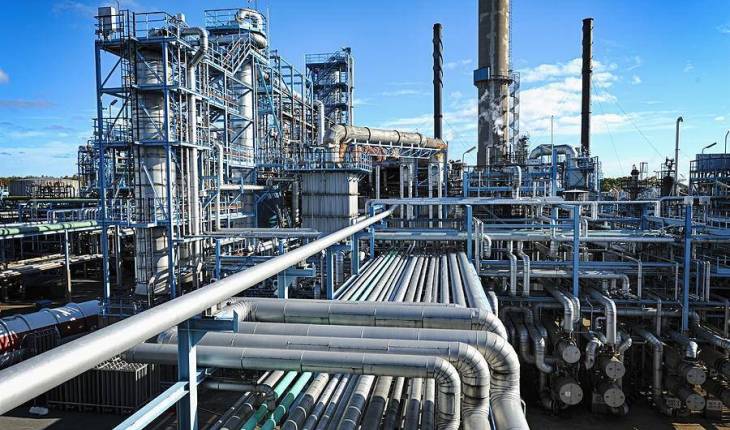- NNPC Trading Deficit Rises by 128%, Refineries Lose N8.5bn
The Nigerian National Petroleum Corporation saw its trading deficit rise by 128.5 per cent in July to N11.87bn, with the nation’s crude oil refineries responsible for most of the loss.
The NNPC, in its latest financial and operations report obtained by our correspondent on Friday, noted that the N11.87bn deficit was an additional loss of N6.68bn relative to the previous month’s deficit of N5.19bn.
The refineries lost a total of N8.52bn in July, as their combined capacity utilisation dropped to 11.94 per cent.
The country’s refineries are the Warri Refining and Petrochemical Company, Port Harcourt Refining Company, and Kaduna Refining and Petrochemical Company.
The Kaduna refinery, which did not process any crude in June and July, lost N3.6bn in July; Port Harcourt refinery lost N2.63bn; and the WRPC recorded a deficit of N2.28bn.
The corporation said, “The unimpressive performance of the downstream is mainly due to high crude oil inventory and the shutdowns of the KRPC and the WRPC during the period.
“Also, the unavailability of some of the major secondary units in the PHRC in July 2017 accounted for the non-production of some light end products with the corresponding increase in operational expenditure as a result of several maintenance interventions.”
Total crude processed by the three domestic refineries for July was put at 224,584 metric tonnes, which translates to a combined yield efficiency of 89.11 per cent compared to crude processed in June, which stood at 231,836MT, translating to a combined yield efficiency of 86.64 per cent, according to the report.
The refineries produced 160,642MT of finished petroleum products out of 224,584MT of crude processed at a combined capacity utilisation of 11.94 per cent compared to 12.73 per cent combined capacity utilisation achieved in June.
“The deprived operational performance is attributed to the WRPC and the PHRC downtime during the month under review. The ongoing revamping of the refineries will enhance capacity utilisation once completed,” the NNPC said.
The corporation said it had been adopting a merchant plant refineries business model since January 2017, taking cognisance of the products’ worth and crude costs.
It said the combined value of output by the three refineries (at import parity price) for July amounted to N24.83bn while the associated crude plus freight costs and operational expenses were N24.13bn and N9.21bn, respectively.
“This resulted in an operating deficit of N8.52bn by the refineries. Also, during the period under review, refineries combined capacity utilisation was 11.94 per cent with the PHRC, recording the highest capacity utilisation of 24.18 per cent,” the NNPC said.
It said the petroleum products (the Premium Motor Spirit and the Dual Purpose Kerosene only) produced by the domestic refineries in July amounted to 80.18 million litres, compared to 186.26 million litres in June.
The corporation said its operating revenue for June and July was N295.75bn and N269.30bn, respectively, representing 79.54 per cent and 73.23 per cent of the monthly budget.
Similarly, operating expenditures for the same periods were N300.98bn and N281.18bn, respectively, which also represented 94.74 per cent and 88.52 per cent of budget for June and July, respectively.
According to the report, other drags to the month’s performance include shutdown of Trans Niger Pipeline and production shut-in to Que Iboe Terminal and Bonga Terminal.

 Education4 weeks ago
Education4 weeks ago
 News3 weeks ago
News3 weeks ago
 Business3 weeks ago
Business3 weeks ago
 Technology3 weeks ago
Technology3 weeks ago
 Investment4 weeks ago
Investment4 weeks ago
 Investment3 weeks ago
Investment3 weeks ago
 Telecommunications4 weeks ago
Telecommunications4 weeks ago
 Banking Sector3 weeks ago
Banking Sector3 weeks ago






























